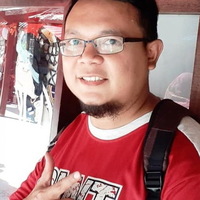
Gili Argenti
Pada tahun 2001 melanjutkan ke Prodi Ilmu Pemerintahaan (Konsetrasi Politik) di FISIPOL, Universitas Muhammadiyah Yogyakarta (UMY). Semasa kuliah pernah aktif di Unit Kerohaniaan Islam atau Lembaga Dakwah Kampus (UKI/LDK) Jama’ah Al-Anhar UMY dan Kesatuan Aksi Mahasiswa Muslim Indonesia (KAMMI). Pernah bekerja sebagai Pendamping Program Keluarga Harapan (PKH) di bawah Kementrian Sosial Republik Indonesia dari 2007-2012. Pada tahun 2010 melanjutkan kuliah S2 ke Sekolah Pasca Sarjana di Universitas Nasional (UNAS) Jakarta prodi Magister Ilmu Politik. Mulai 2019 menempuh S3 Ilmu Politik, Universitas Padjadjaran.
less
Uploads
Papers by Gili Argenti
Kemudian civil society menjunjung tinggi pluralitas, tidak melakukan tindakan mengancam atau memusuhi pluralitas, memegang prinsip teguh mengakui keragaman di tengah-tengah masyarakat, eksistensi mereka menjadi penyokong utama dari semangat toleransi dan kemajemukan sosial.
which has become a topic of international discussion, therefore the cause
has provoked problems between several big countries in Asia and a number
of member countries from ASEAN. The problem began with unilateral claims
made by China against areas in the South China Sea which were considered
illegal and carried out unilaterally. This prompted ASEAN to intervene in
representing the disputed issue. In this article I will describe the role of
ASEAN in responding to the conflict in the South China Sea and analyze
Indonesia's role in the conflict even though Indonesia itself is neutral. The
research method that I will use in this research is a qualitative method which
functions to collect data and information analytical descriptive.
Keywords: Indonesia, ASEAN, South China Sea, Territorial Disputes